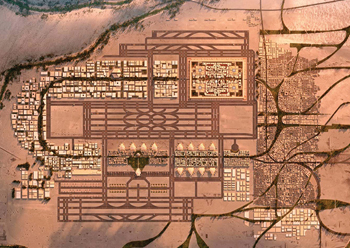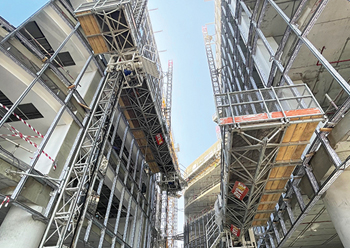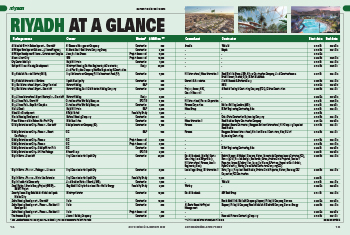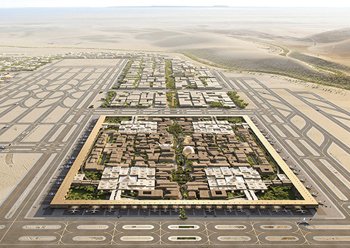
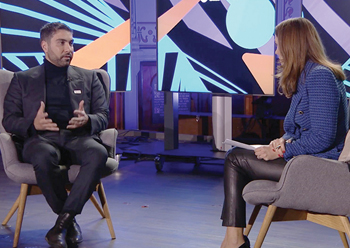 Al-Rasheed speaking at the fireside chat with Crosby.
Al-Rasheed speaking at the fireside chat with Crosby.
Saudi Arabia’s bid for Expo 2030 is not a one-off investment and the $8 billion likely spend would be one “for the future of our citizens, residents and visitors”, said the head of the Royal Commission for Riyadh City, Fahd Al-Rasheed.
“We’re thinking about the legacy of the site itself and how it can be used. It cannot be just built and then everybody packs their bags and leaves. It has to be used beyond us. So, we’re thinking about the design of the buildings and we have that in this site masterplan in a way that we can use them for the future of work, the future of education and re-skilling,” he said.
Speaking at a fireside chat with award-winning broadcaster Emma Crosby at a special event on the Davos promenade on the sidelines of the World Economic Forum’s (WEF) Annual Meeting last month, Al-Rasheed highlighted that the Expo 2030 infrastructure will come naturally given the work already being done regarding Crown Prince Mohammed bin Salman’s Vision 2030.
His vision, however, for the expo is not solely in the look and feel of the site, but rather in its legacy. “Our legacy from Expo 2030 is not going to be a building. It has to be mass engagement, and at a scale never seen before,” he explained.
“It is literally the largest event in the world, and so what we committed to is the following; not only are we going to get 30, 40 million people to the site, which is fantastic… it’s a record. We’re going to get a billion people to interact with it on the Metaverse and we are now translating that vision into reality.”
This virtual expo will cater to those who wouldn’t be able to fly over to the kingdom’s capital, but the chief executive said that it will be more than just a virtual tour.
“You’d give a billion persons the opportunity to actually come and see it, and that would be the first win,” he said. “The second win is they would actually come in and do something experiential about water use and energy use, learn something and apply it in their home. That will get you mass impact.”
“And third, maybe even transact, do a job virtually, or meet somebody or a company, get an investment, etc. So again, it has to be useful to everybody for it to be used.”
Even then, achieving an onsite presence of over 30 million is a feat not yet seen before, with the Dubai Expo 2020 attracting 26 million visitors over the span of six months.
“You have to have a great site, great mobility, which we are doing already now. And the metro will connect to the site,” he said. “The site is just south of the airport. So, it’s basically the gateway into the city of Riyadh. And we are going to have 140,000 hotel rooms by then anyway. And so, the expo will come in naturally.”
Saudi Arabia is no stranger to hosting millions of visitors, being home to the two holy mosques which bring in millions of pilgrims every year for Hajj.
However, creating such a complex site will not come cheap: A whopping $8 billion of investment from the kingdom will go into making these plans a reality.
“So, it’s a very large investment. We believe that this investment is totally justified. We have a return on investment target as well for it. We have a socioeconomic target on jobs created both during the Expo and before and after. And so, the Government of Saudi Arabia doesn’t just put money into buildings and infrastructure and white elephants,” Al-Rasheed explained. “We actually want a return on investment out of everything that we do.”
That, the chief executive points out, is why the theme of Riyadh’s Expo is ‘the Foresight of Tomorrow’.
“It means that we have to take responsibility for our future, whether we are countries, companies or individuals. We have to project the next two, three decades and look at the opportunities that it’s going to avail and the challenges and tackle them. We need to stare them right in the face,” he said.
Within this theme lies three sub themes: A Different Tomorrow, Climate Action, and Prosperity for All.
The capital has already begun working on climate action and sustainability, with over $70 billion invested in such projects.
“We said we cannot announce a strategy of hypergrowth without having a sustainability commitment. So last year we actually announced the real sustainability strategy,” Al-Rasheed said.
“We love our environment, we love our city, and we have a commitment to the world. So, we will change all our systems, we will change all our plans. We will make 30 per cent of our cars, electric vehicles by 2030 and 50 per cent renewable energy sources by 2030,” he said.
The fireside chat was attended by a large number of WEF delegates, business executives, journalists and investors.
Riyadh is competing with Italy’s Rome, South Korea’s Busan and Ukraine’s Odesa to host the 2030 Expo. The winning candidate is expected to be selected in November this year.







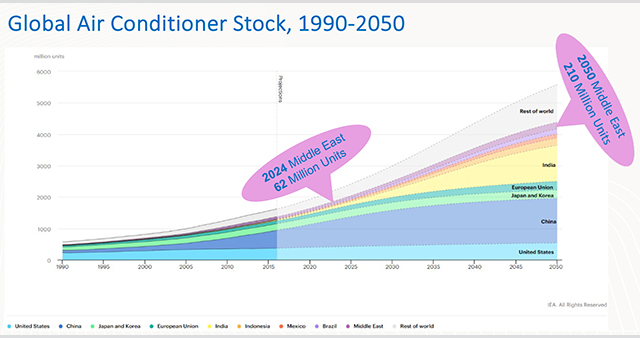






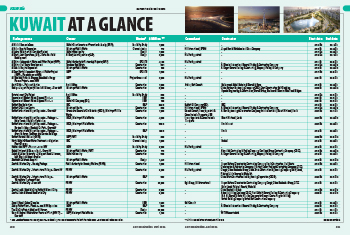






_0001.jpg)


.jpg)




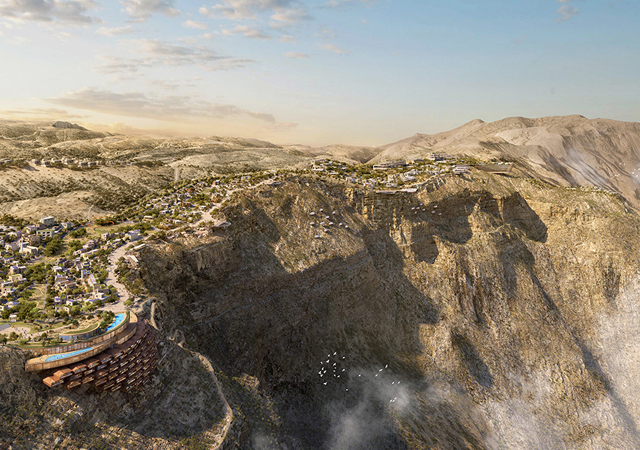











.jpg)








.jpg)



